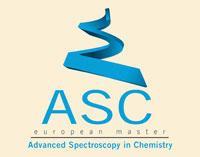For bright chemists with a love of travel, a European Masters spectroscopy course may be just the ticket, says Yfke Hager
For bright chemists with a love of travel, a European Masters spectroscopy course may be just the ticket, says Yfke Hager
If you believe that education is as much about discovering new cultures as gaining new scientific knowledge, the world is your oyster. It’s easier than ever to transcend national boundaries while pursuing a higher degree. You may already be familiar with the Erasmus (European region action scheme for the mobility of university students) exchange programme, established in 1987, which encourages academic mobility of higher education students and teachers within Europe. Recently, the programme has expanded to include a new option that will appeal to chemists with wanderlust.

In 2004, the European Commission launched Erasmus Mundus, a mobility programme aimed at reinforcing European and international links in higher education by providing international scholarships for integrated Master courses jointly offered by leading European institutions. One of the latest courses open to Erasmus Mundus students is the two-year European Master of science: advanced spectroscopy in chemistry.
Jean-Pierre Wignacourt, professor of solid state and materials chemistry at Universit? Lille 1, France, and network coordinator of the new Master of science course, explains how it all began. ’I’ve been involved in the Erasmus programme for a long time,’ he says. In 2005, a consortium of seven universities, including Universit? Lille 1, applied for EU funding to develop a programme in advanced spectroscopy. ’Our aim was to attract bright students from around the world to complete a Masters in Europe, and encourage them to stay on for a PhD,’ says Wignacourt.
The application was successful, and the first students started in the autumn of 2007. The consortium then entered the highly competitive application process to obtain the Erasmus Mundus Master course label, and was selected in October 2007. ’The EM funding covers scholarships for international students and allows us to pay for lecturers from around the world,’ Wignacourt explains. While all courses are taught in English, each institution also offers optional courses including its national language, enabling students to immerse themselves in a new culture.
Specialised spectroscopy
During the first semester, students attend courses in advanced spectroscopic methods, including magnetic resonance, mass spectrometry, optical spectroscopy and diffraction techniques. In the second and third semesters, they can expect more specialised courses on molecular synthesis, biology, nanotechnology, modelling, green chemistry, medicine, and new energy sources. Finally, the fourth semester is dedicated to the Masters thesis, based on a research project. Students are strongly encouraged to conduct a collaborative research project between two of the partner institutions, Wignacourt explains. He adds that some students conduct their research project in industry; so far, the response from industry has been overwhelmingly positive.
Students are expected to move to another consortium institution for their second year, depending on their preferred area of specialisation. The consortium members are the University of Bergen, Norway; Alma Mater Studiorum University of Bologna, Italy; University of Helsinki, Finland; Jagiellonian University in Krakow, Poland; University of Leipzig, Germany; Universit? Lille 1, France; and Complutense University in Madrid, Spain. In order to keep their scholarship, Wignacourt explains, students need to obtain 60 European Credit Transfer System (ECTS) points each year.
Competitive chemistry
As may be expected from a course designed to attract the best students from around the world, competition for places is fierce. ’There are about 20 scholarships per year, and we receive over 200 applicants for those 20 places,’ Wignacourt says. The application process is entirely online. A selection committee, made up of representatives from each of the seven consortium members, meets to select candidates based on criteria that include academic records of previous studies, scientific background of undergraduate studies, a motivation letter, recommendation letters and acquired practical experience. ’Each student is considered by all seven institutions,’ says Wignacourt.
The first intake graduated in September 2009. As of early October 2009, 70 per cent have started a PhD and 10 per cent have gone straight into a job in industry. Among the cohort starting this autumn, four of the students came from European countries and the other 20 from all over the world, including Ethiopia, Mexico, China, and Russia. ’It’s a very international mix,’ Wignacourt says. ’This makes it a very interesting group to teach, very different from our usual classes.’
To date, no applications have been received from UK students, but Wignacourt expects this to change in future. ’The EC has changed the rules, and from next year, approximately half of the scholarships will be reserved specifically for European students,’ he says. Indeed, the new Masters may prove an effective weapon to combat brain drain from western Europe. ’We really want to keep good students within Europe,’ Wignacourt emphasises.
Yfke Hager is a freelance science writer based in Manchester, UK
Further Reading
For more information and to register for the course, visit the ASC website












No comments yet